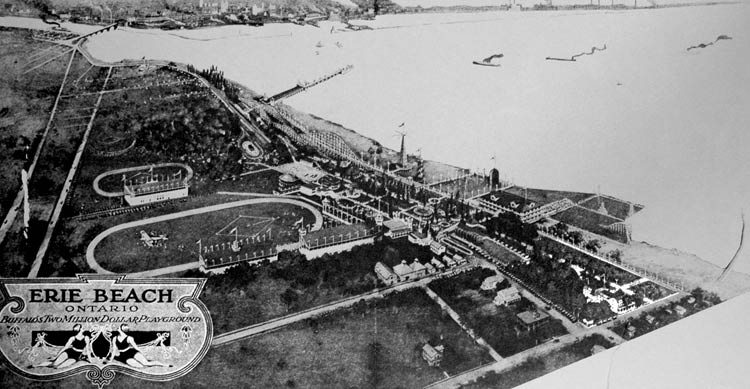
1920's advertisement for Erie Beach Park. The new Peace Bridge is visible at top left, showing how close to the border the park
was situated. Frank Bardol expanded the park to 50 acres from its original 11 acres.
"Buffalo's Million Dollar Park"
Erie Beach Park - Ontario
Part 2: 1920 - 1930

1920's advertisement for Erie Beach Park. The new Peace Bridge is visible at
top left, showing how close to the border the park
was situated. Frank Bardol expanded the park to 50 acres from its original 11
acres.
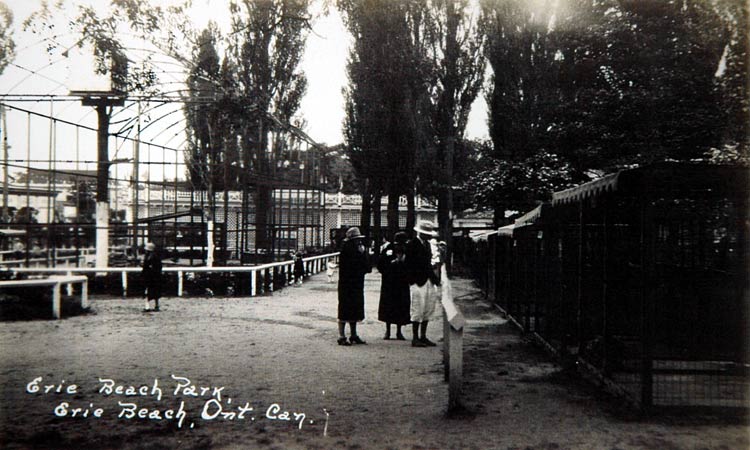
Frank Bardol invested nearly $500,000 in Erie Beach Park over ten years. The
zoo at the Park was a seasonal exhibition,
with animals transported from the Buffalo zoo for the summer. At left are the
large "flying cages." patterned after those at
the Bronx Zoo, where parkgoers could view hundreds of birds and watch daily
shows put on by trainers.
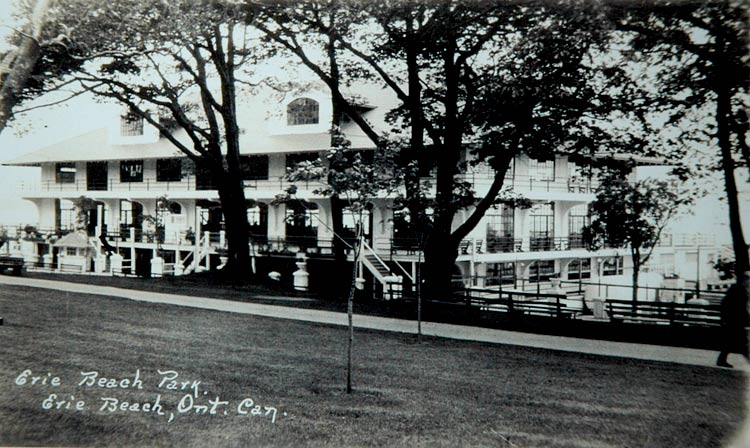
This building was the symbol of the park and is the one most often recalled
by people living today because it existed until 1975.
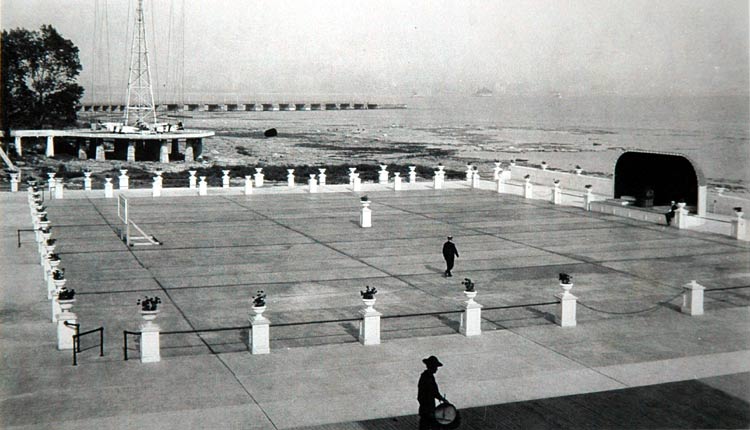
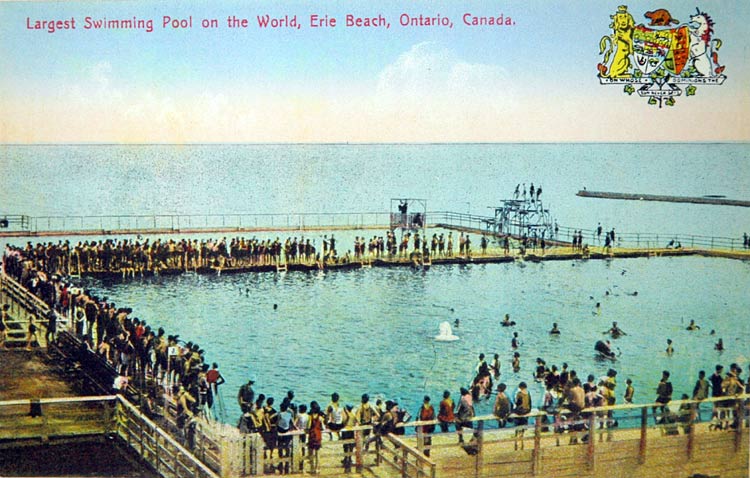
The concrete swimming pool, installed to compensate for Erie Beach's lack of
a sandy beach, was billed as the "largest in the
world." Its sand-covered bottom sloped from 3 feet to 8 or 9 feet. Lake
water was continuously pumped into it, which permitted
the management to boast that the water was completely replaced every 24 hours.
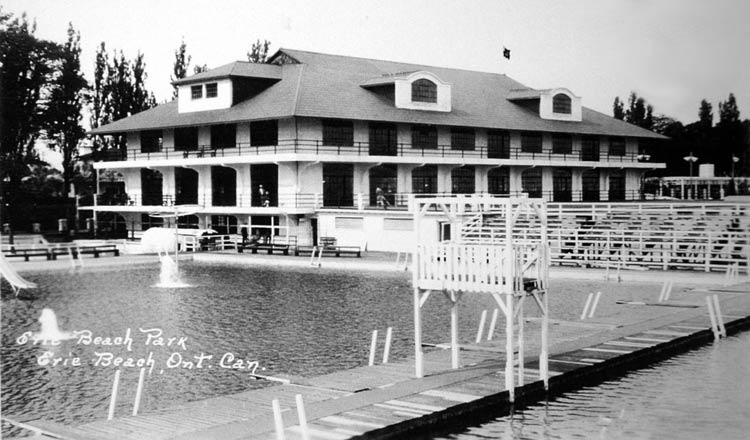
During Frank Bardol's tenure, the Blue Streak coaster was installed, as well
as a Slide Tower, Laugh House, Dodgem Cars,
Circle Swing, among other improvements. Crystal Beach was not sitting idle during
these years. In 1924, the Crystal Beach
owners created a seawall along the lake front of their property and removed
an enormous sand dune to fill the area, expanding
their available acreage by 600 per cent. For images on that operation, look
here.
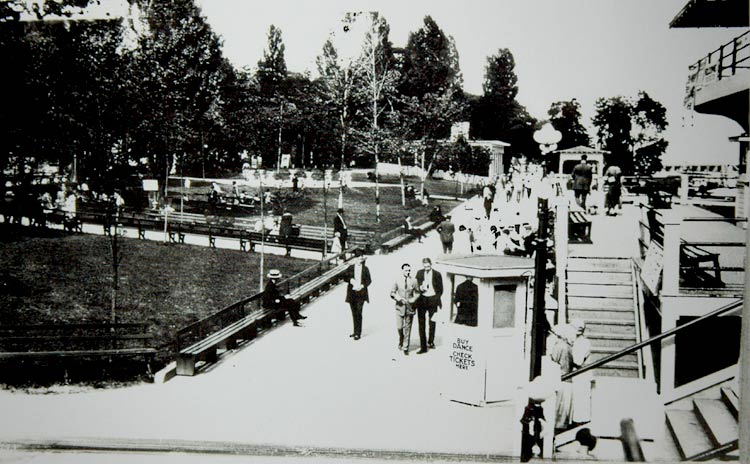
Frank Bardol died suddenly in 1925 at age 56. The next year, Erie Beach Park
was sold to another Buffalonian, J. Homan Pardee,
for $1.5 million dollars. He brought new investment dollars to help Erie Beach
compete with Crystal Beach.
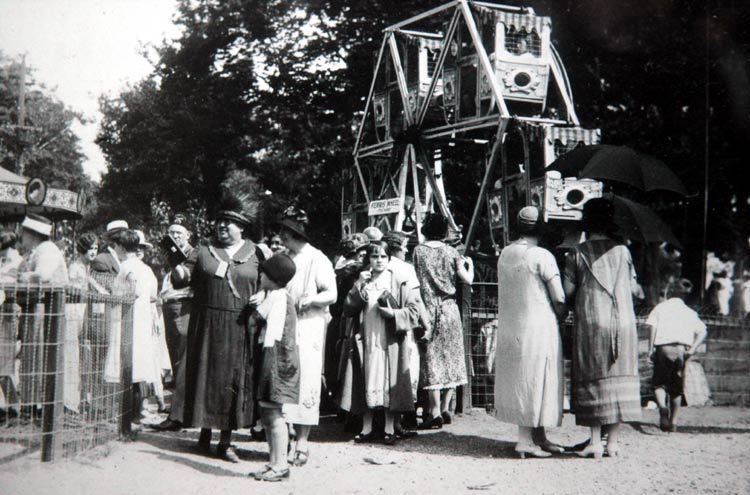
Pardee spent $60,000 updating the big pier in 1927. He installed the double
figure-eight Wildcat ride in 1928 to woo coaster fans
from Crystal Beach's Cyclone which had been erected in 1926.

Unfortunately, the Depression which began in 1929 brought a precipitous decline
in tourist income. That, plus the competition with
Crystal Beach, led J. Homan Pardee to close Erie Beach Park on Labor Day, 1930.
(See the newspaper article about the
demolition here.) He sold the park's equipment, some of which went to Crystal
Beach. Although there were plans to create
a summer residential community that would utilize the Erie Beach Hotel and swimming
pools and Casino, the
continuing economic climate did not permit this. The elegant Hotel burned in
1935. The Casino, solidly built of concrete,
stood for many years until it was demolished in 1976 for safety reasons.
Although Crystal Beach filed for bankruptcy in 1931 in order to reorganize,
it was to continue with great success through the
1940's, 1950's and 1960's, declining thereafter until finally closing forever
in 1989.
Part of the wooded Erie Beach Park land has
been included in the Fort Erie-Port Colborne Friendship Trail. It is accessible
in
2005 for bicyclists, walkers, picnikers and those who wish to sit in the quiet
shade by the lake on their day off...
The images below show old scenes followed by 2005 views of the area.
Grateful thanks to Erin Wilson, Curator of Structural Heritage, Fort Erie Museum; Linda Bleichfeld, collector who generously permitted copying of most of these images; Linda Banas and Barb Goldman for coordinating a site visit and providing spring photos of the Erie Beach Park grounds.
Reference materials include Crystal Beach: The Good Old Days, by Erno Rossi; a detailed website by a coaster enthusiast with many references to rides; Waverly Beach Chronicles, by Debby Cohen; Many Voices: A Collective History of Fort Erie, published by the Fort Erie Museum Board; and newspaper articles from the time.
For more information on Western New York's "Pleasure Parks," see Rose Ann Jankowiak-Hirsch's article in the Summer/Fall 2003 issue of the Heritage Press Mgazine. Copies are still available for sale (716) 893-4011.